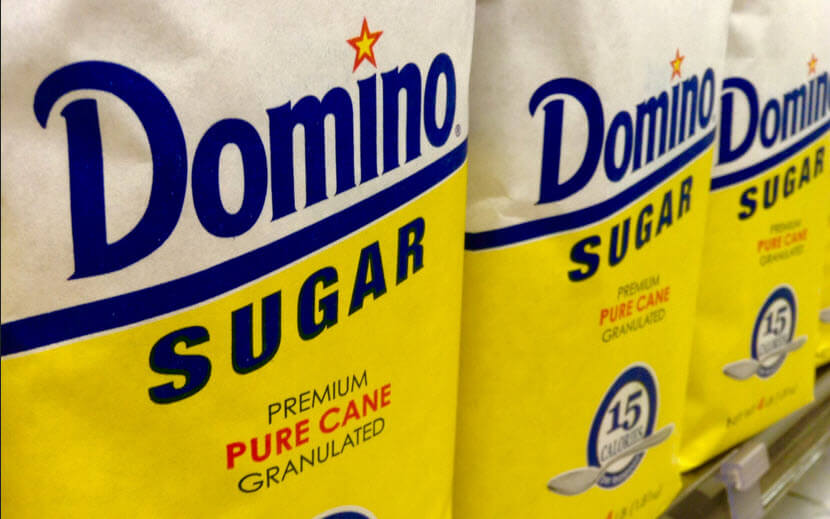Will This Increase Breast Cancer Risk?

Will This Increase Breast Cancer Risk?
We hear a lot about sugar and its bad effects today. Actually the findings have been publicized for many years – but the public sweet tooth has over-ridden the bad publicity. What exactly is wrong with this product?
Sugar occurs naturally in many foods we eat. The documented problems arose when sugar is added.
The most common sources of added sugars include soft drinks, cakes, pies, chocolate, fruit drinks and desserts. Just a single can of cola can contain up to seven teaspoons of added sugar, while an average-sized chocolate bar can contain up to six teaspoons.
High blood Pressure, cardiovascular disease, obesity, diabetes
The journal Open Heart claimed added sugars may increase the risk of high blood pressure, even more so than sodium. And in February 2014, a study led by the Centers for Disease Control and Prevention (CDC) associated high added sugar intake with increased risk of death from cardiovascular disease (CVD).
A 2013 study published in The American Journal of Clinical Nutrition suggested that consumption of sugar-sweetened beverages increases weight gain in both children and adults, while a review paper from the World Health Organization (WHO) notes an increase in the consumption of such beverages correlates with the increase in obesity. Sugar is the number one culprit when it comes to obesity. However, sugar can do more harm than piling up extra pounds on one’s body. A new study suggested that it could also increase one’s risk of breast cancer and hasten the spread of the disease to the lungs.
A 2008 study by researchers from Princeton University, NJ, found rats used to consuming a high-sugar diet displayed signs of binging, craving and withdrawal when their sugar intake was reduced. “We need to wean ourselves off. We need to de-sweeten our lives. We need to make sugar a treat, not a diet staple,” Dr. Lustig told The Guardian in 2013.
“The food industry has made it into a diet staple because they know when they do you buy more,” he added. “This is their hook. If some unscrupulous cereal manufacturer went out and laced your breakfast cereal with morphine to get you to buy more, what would you think of that? They do it with sugar instead.”
Many people turn to artificial sweeteners as a sugar alternative, but according to a study reported by MNT last year, thesesweeteners may still drive diabetes and obesity.
The study, published in the journal Nature, suggests artificial sweeteners – including saccharin, sucralose and aspartame – interfere with gut bacteria, increasing the activity of pathways associated with obesity and diabetes.
Artificial sweeteners
What is more, they found long-term consumption of artificial sweeteners was associated with increased weight, abdominal obesity, higher fasting blood glucose levels and increased glycosylated hemoglobin levels.
“Together with other major shifts that occurred in human nutrition, this increase in artificial sweetener consumption coincides with the dramatic increase in the obesity and diabetes epidemics,” the authors note. “Our findings suggest that artificial sweeteners may have directly contributed to enhancing the exact epidemic that they themselves were intended to fight.”
Breast cancer
A high level of sugar in one’s diet is not healthy at all, as this can increase the odds of developing and spreading breast cancer. Study co-author Peiying Yang, Ph.D., assistant professor of palliative, rehabilitation and integrative medicine at the University of Texas MD Anderson Cancer Center and colleagues published a new study supporting this fact, Medical News Today reported.
There have been previous studies associating dietary sugar intake with breast cancer risk. Some research suggested inflammation to be playing an important role in this link. Yang noted that no studies had investigated the direct impact of sugar consumption on breast cancer development in animal models or examined the underlying mechanism of the association in such models.
“We determined that it was specifically fructose, in table sugar and high-fructose corn syrup, ubiquitous within our food system, which was responsible for facilitating lung metastasis and 12-HETE production in breast tumors,” study co-author Lorenzo Cohen noted. “This study suggests that dietary sucrose or fructose induced 12-LOX and 12-HETE production in breast tumor cells in vivo,” he added.
The researchers stressed that pinpointing the risk factors of breast cancer is a “public health priority” and their study proves that dietary sugar consumption plays a significant role in developing breast cancer. The finding is particularly important, given the rising sugar consumption in the US; the researchers note that the per capita sugar consumption in the US has reached more than 100 Ibs annually – the equivalent to around 30 tsps of sugar a day.
Click here to read the featured article



